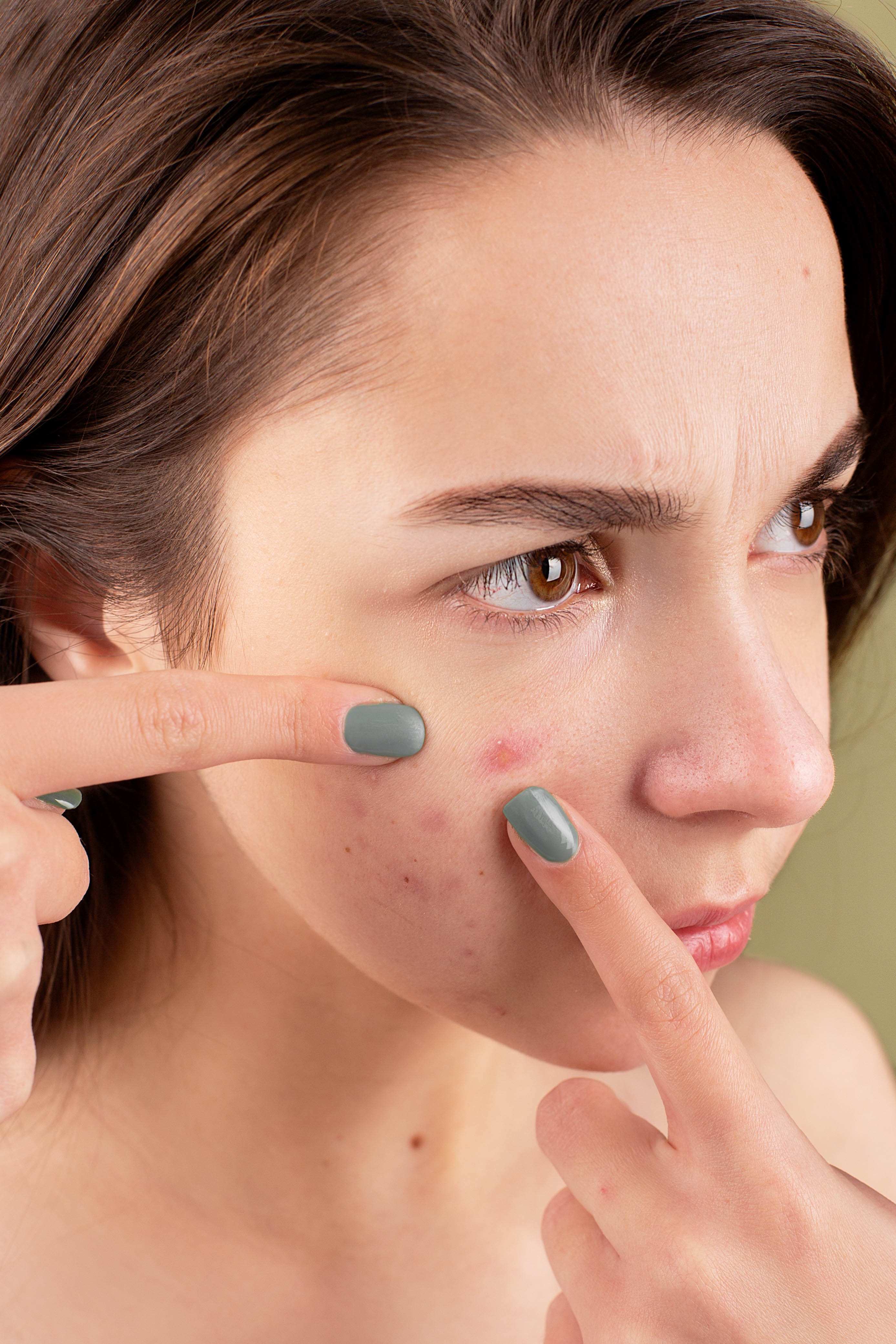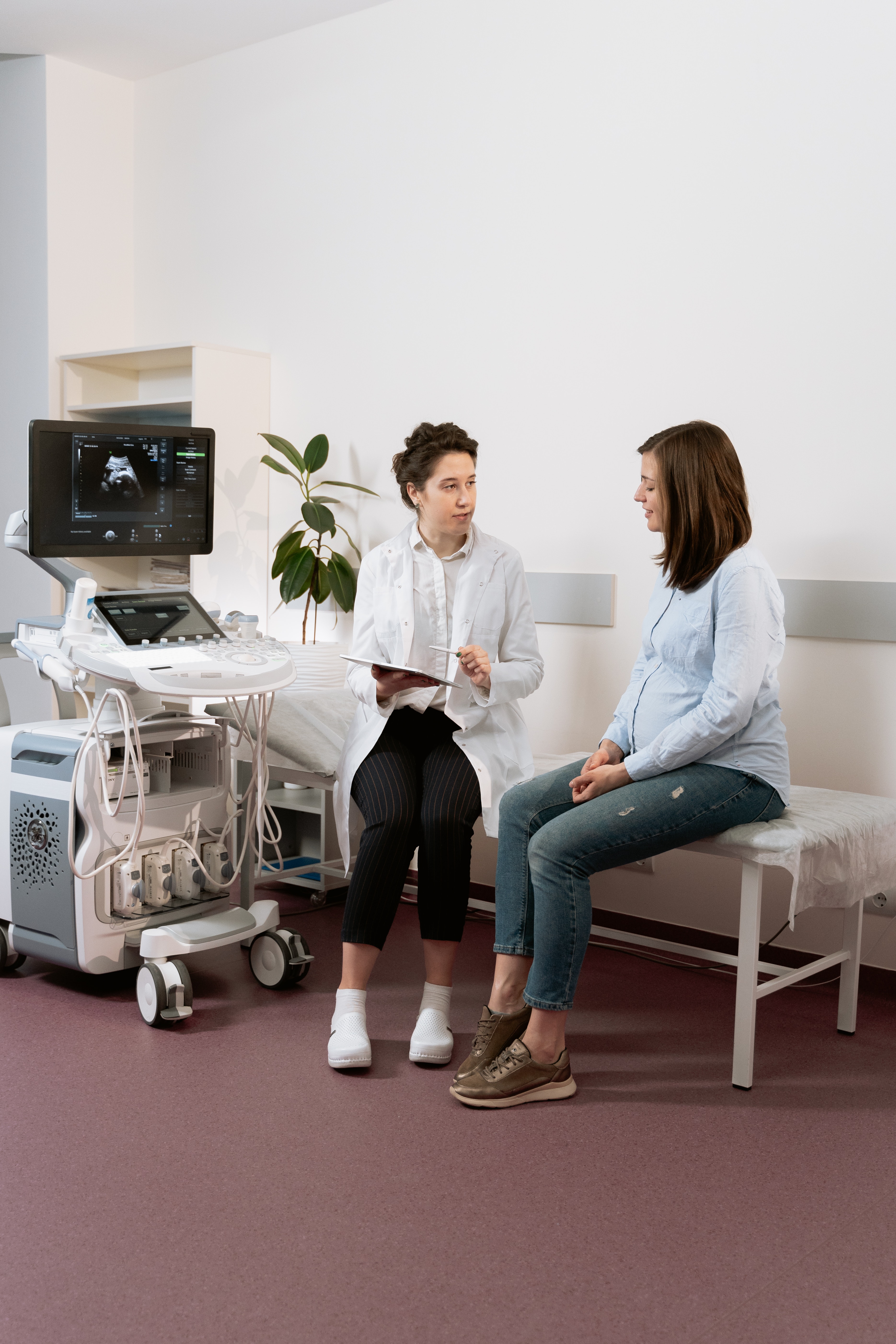
Hirsutism in PCOS—Everything You Need to Know
by Indranil on August 1, 2023 , 8 min read
Hey there! If you're a woman dealing with excessive hair growth on your face or body, particularly in areas typically associated with male hair patterns, you may be experiencing hirsutism. Hirsutism is a condition where women develop thick, dark hair in these areas. Interestingly, hirsutism is often associated with Polycystic Ovary Syndrome (PCOS), a common hormonal disorder among women. In this blog post, we'll delve into everything you need to know about hirsutism in PCOS, from its causes and symptoms to diagnosis, treatment options, and more. So, let's get started!
Causes and Symptoms
So, what exactly causes hirsutism in PCOS? Well, it primarily stems from hormonal imbalances. Women with PCOS often have higher levels of androgens, which are male hormones. These increased androgen levels can lead to the development of hirsutism. As a result, you may notice excessive hair growth on your chin, upper lip, or other areas that typically have less hair in women. Other symptoms of PCOS may include irregular menstrual periods, acne, weight gain, and fertility issues.

When to see a doctor
If you're concerned about the excessive hair growth you're experiencing, it's a good idea to seek medical advice. A gynaecologist or healthcare professional can evaluate your symptoms and medical history and perform the necessary tests to provide an accurate diagnosis. Whether it's through an online consultation or an in-person visit, don't hesitate to reach out and discuss your concerns.
Risk factors
While anyone can develop hirsutism in PCOS, certain factors may increase your risk. If you have a family history of PCOS or hirsutism, you might be more susceptible. Additionally, being overweight or obese, having insulin resistance, or belonging to certain ethnic backgrounds (such as South Asian, Middle Eastern, or Mediterranean descent) can also increase the likelihood of developing hirsutism in PCOS. It's important to be aware of these risk factors, but remember that hirsutism can occur in anyone, regardless of these factors.

Complications
Excessive hair growth can have both physical and emotional implications. Hirsutism in PCOS can cause distress, leading to feelings of self-consciousness and affecting your self-esteem. It's not uncommon to experience anxiety or depression due to the impact on your appearance and body image. If you're struggling with the emotional aspects of hirsutism, consider reaching out for support. Therapists, support groups, or online communities can provide a safe space to share your experiences and find solace among others who understand what you're going through.
What tests will be done to diagnose hirsutism?
To diagnose hirsutism in PCOS, your healthcare provider may perform various tests. They'll start by taking a detailed medical history and conducting a physical examination. Blood tests will likely be ordered to measure hormone levels, including testosterone and other androgens. These tests can help identify hormonal imbalances and rule out other possible causes of hirsutism. In some cases, imaging tests like ultrasounds may be used to evaluate the ovaries and check for any structural abnormalities.
How Is Hirsutism Treated?
Now let's talk about the treatment options for hirsutism in PCOS. The goal of treatment is to manage the symptoms, reduce excessive hair growth, and address the underlying hormonal imbalances. The specific treatment approach will depend on the severity of your symptoms and your personal preferences. Here are some common options:
- Medications: Your doctor may prescribe anti-androgen medications to block the effects of androgens on hair follicles. These medications can help slow down hair growth and improve the appearance of hirsutism. Oral contraceptives may also be recommended to regulate hormone levels and reduce androgen production.
- Hair removal methods: There are several hair removal methods available to help manage hirsutism. Shaving, waxing, threading, and using depilatory creams offer temporary solutions but require regular maintenance. If you're looking for a more long-term option, you may consider laser hair removal or electrolysis, which target the hair follicles to reduce hair growth over time.
- Lifestyle modifications: Making healthy lifestyle changes can contribute to managing hirsutism in PCOS. Regular exercise, a balanced diet, and weight management can help improve hormonal balance and reduce the severity of symptoms. If you have insulin resistance, managing it through dietary modifications and medication can also be beneficial.
Remember that the treatment approach should be tailored to your specific needs and discussed with your healthcare provider.
PCOS Test
If you suspect you may have PCOS, your healthcare provider may recommend a PCOS test. This test involves evaluating your medical history, performing a physical examination, and conducting various tests to assess hormone levels and check for other possible causes of your symptoms. Don't hesitate to reach out and discuss your concerns with a healthcare professional who can guide you through the diagnostic process.

Gynaecologist online consultation
In today's digital age, online consultations with gynaecologists have become increasingly accessible and convenient. If you're unable to visit a gynaecologist in person or prefer the convenience of a virtual consultation, consider exploring the option of an online consultation. Many healthcare providers offer secure and confidential online platforms where you can discuss your symptoms and concerns and receive expert advice from the comfort of your own home.
PCOS supplements
In addition to medical treatments, some individuals may find PCOS supplements helpful in managing their PCOS symptoms. While it's important to consult with a healthcare professional before starting any new supplements, certain options like inositol, vitamin D, and omega-3 fatty acids have shown promise in improving hormone balance and managing PCOS symptoms. However, it's essential to remember that supplements should be used as part of a comprehensive treatment plan and should not replace medical advice or prescribed medications.

Hormonal Imbalance Medication
When it comes to treating hormonal imbalances in PCOS, medication may be prescribed to help regulate hormone levels and manage symptoms. Oral contraceptives, also known as birth control pills, are commonly used to regulate menstrual cycles and reduce androgen production. Other medications, such as anti-androgens or insulin-sensitizing drugs, may also be prescribed depending on the individual's specific needs and symptoms. It's important to work closely with your healthcare provider to determine the most appropriate medication regimen for you.
Conclusion
In conclusion, understanding hirsutism in PCOS is crucial for women experiencing this distressing condition. Hirsutism can significantly impact self-esteem and quality of life, but knowing the underlying causes and available management options can bring hope and relief.
If you suspect hirsutism may be linked to PCOS, it's essential to undergo a PCOS test to confirm the diagnosis. Seeking a gynaecologist's online consultation can provide expert guidance and personalized treatment plans to address both hirsutism and the underlying hormonal imbalances associated with PCOS. In addition to medical intervention, considering PCOS supplements and hormonal imbalance medication may complement the treatment approach, promoting hormone regulation and minimizing hirsutism symptoms.
Remember, you are not alone in your journey. There are resources and support available to help you manage hirsutism in PCOS and improve your well-being. By staying proactive and informed, you can take control of your health and embrace a more confident and fulfilling life.
Stay positive, take care of yourself, and remember that you are beautiful just the way you are!